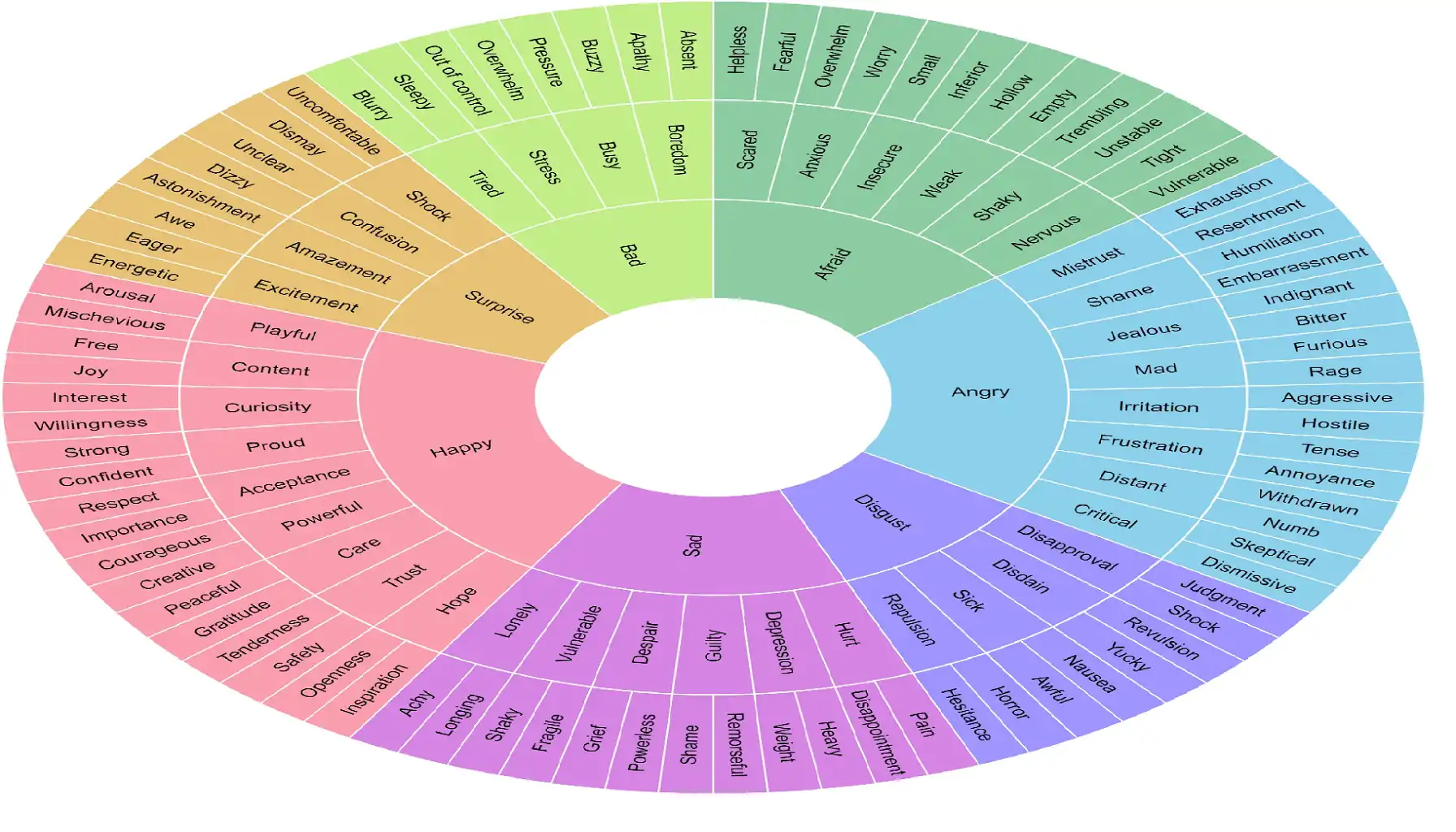Why Emotional Intelligence Matters More Than IQ in Success

Contents:
Many people wish a few times in their lives to be smarter. But how often do we wish we were more understanding, empathetic? Emotional Intelligence, or EI, is all about understanding emotions.
What is Emotional Intelligence? Why does it matter so much in today’s world? This article will define Emotional Intelligence and compare it with IQ.
Try these free mind games if you want to be smarter!
Emotional Intelligence Definition
Emotional Intelligence (EI or EQ) is the ability to recognize, understand, manage, and use emotions, both your own and those of others, in healthy and constructive ways.

Emotional Intelligence meaning is wider than Intrapersonal Intelligence, as you’re trying to understand not only yourself, but people around you too.
The first Emotional Intelligence book was published in 1964 and developed this term. It was a Daniel Goleman Emotional Intelligence book. Goleman is researching EI to this day!
What does Emotional Intelligence mean? It means you display these qualities:
Self-Awareness: Understanding your own emotions, triggers, and how they affect your thoughts and behavior.
Self-Regulation: Managing your emotions in a healthy way, especially in stressful situations.
Motivation: Using your emotions to drive you toward goals, stay optimistic, and remain committed.
Empathy: Understanding and sharing the feelings of others.
Social Skills: Building and maintaining healthy relationships, communicating effectively, and handling conflict.
Why Is Emotional Intelligence Important?
Empathy may not sound grand when we talk about success, but our world is built on connections and communication. That’s where EI skills come in handy.
Better Relationships

EI helps you understand others, show empathy, and communicate more effectively. Emotional intelligence in the workplace creates a sustainable relationship with colleagues. EI at home helps build a happier family.
For example, you can recognize when a friend/colleague is upset, ask about it with care, and avoid topics that could make it worse.
Improved Mental Health
People with strong EI are better at managing stress, anxiety, and negative emotions. This quality helps protect their mental well-being.
For example, instead of spiraling after failure, you understand your disappointment and focus on learning from it.
Stronger Leadership

EI in leadership helps great leaders motivate, inspire, and connect with others, making them more trusted and effective.
For example, a team manager notices when morale is low and takes time to listen and support the team.
Better Decision-Making
Understanding your and others’ emotions helps you make more thoughtful, less impulsive decisions.
For example, you avoid making a rash decision when you're angry by recognizing the emotion and waiting until you're calm.
Conflict Resolution
EI helps you navigate disagreements calmly, listen actively, and find common ground instead of escalating tension.
For example, in a disagreement, you stay composed, listen to the other person, and try to find a solution instead of winning the argument. You might use Emotional Intelligence quotes like “I’m here for you” or “I’m listening”.
Greater Resilience
It’s hard to say whether a brain is a muscle or not, but like muscles, it gets tired, sore. When emotions are running high, the brain wastes a lot of energy, but emotionally intelligent people bounce back from setbacks more quickly.
How to Improve Emotional Intelligence
Now you know about the benefits of EI, but what to do if you have low emotional perception? Just as you can prepare for an intelligence-based test, like Mensa IQ Testing, and raise your IQ, you can subtly increase your EI.
Practice Self-Awareness
Self-awareness is understanding precisely what you feel and acting accordingly. Pay attention to your emotions throughout the day.
Ask yourself these questions:
What am I feeling right now?
Why do I feel this way?
How is this emotion affecting my behavior?
If you have a hard time picking your emotions, try an EI chart.

Related article: Spin the Emotion Wheel: A Therapist’s Guide
Learn to Self-Regulate
Self-regulation is one of the most vital EI habits. Pause before reacting. So many historical conflicts could have been prevented if someone just had stopped to think. When you're angry, stressed, or overwhelmed, take a moment to breathe and think before responding.
What do you do if you’re angry? Use calming techniques like deep breathing, mindfulness, counting to 10, or taking a short walk. And only after you have cooled down a bit, continue the talk.
Develop Empathy
Just as they say, put yourself in others’ shoes. Yet it’s not as easy as it looks. Books on Emotional Intelligence can tell you about empathy, but you can’t learn it without bonding with other people.
Listen to others without interrupting or judging. Listen intently, try to guess someone’s mood when they are talking by cues like tone, body language, and facial expressions.
Improve Social Skills

You need not only empathy, but also the ability to carry on a conversation. Be respectful, learn to give and receive constructive feedback. Experts teach respectful communication at EI courses. If you’re unable to take them, simply observe how others manage conversations and conflicts effectively.
Let’s have a little Emotional Intelligence quiz. Imagine that someone is annoying you. For example, your roommate yet again forgot to wash the dishes. What will you say?
If you’d say "You never...", it wouldn’t be a great option. It immediately feels like blame. EI books recommend beginning with "I feel..." statements. Then it doesn't feel like blame immediately, and people might hear you out.
Boost Your Motivation
Giving up is easy. People wonder how to develop Emotional Intelligence, begin training, and then quickly lose interest.
If you don’t want to abandon your Emotional Intelligence training, set personal goals and focus on long-term growth.
We have inner and outer motivations. If you need to be “pushed” by others, ask your friends and family to support you or find a study buddy. If you can “drive yourself”, record your progress, so you can always know that you’re doing the right thing.
EI Tests
Do you have good empathy? Perhaps. Why not have an EI assessment?

Compared to IQ tests, it’s easier to find a free EI test, but their officiality is dubious.
Emotional Intelligence test free options:
Greater Good Science Center EI Quiz
MindTools EI Quiz
Global Leadership Foundation EI Test
Official but paid tests:
Goleman’s EI Appraisal:
EQ-i 2.0 (Emotional Quotient Inventory)
The Schutte EI Scale (SEIS)
If you’re enrolled in an EI course, your coaches likely know about these tests and can help choose the best for you.
EI VS IQ
Now we’ve seen Emotional Intelligence examples of how EI can help you in life. It seems EI even has its own scale (Schutte EI Scale), just like Intellect has WAIS (Wechsler Adult Intelligence Scale).
How do IQ and EI compare to each other?
Aspect | IQ | EI |
What it measures | Intelligence Quotient is defined by: Logical reasoning, problem-solving, memory, analytical skills | Definition of Emotional Intelligence: Self-awareness, empathy, emotional regulation, social skills |
Main focus | Cognitive abilities | Emotional and interpersonal abilities |
Strengths | Academic success, technical skills, analytical thinking | Leadership, teamwork, communication, empathy |
Weaknesses | May lack social sensitivity, emotional insight | May overlook logical or technical challenges |
Career impact | Helps in technical and knowledge-based roles | Crucial in leadership, management, service roles |
Everyday examples | Solving a math problem, understanding a complex theory | Calming a tense situation, motivating a team |
As you can see, both have uses. Never underestimate the power of empathy!
Mind Elevate
Mind Elevate can make you smarter, so you can be empathetic and super smart at the same time!
Mind Elevate has over 35 brain games and puzzles. They are divided into: memory, logic, attention, musical, and math games. All are suited to develop certain parts of your brain.
Mind Elevate is on iOS and Android. Playing these games barely needs any time, and it’s good for your brain.





